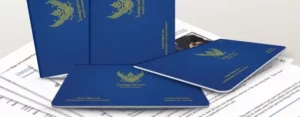Grounds for Divorce in Thailand. Divorce in Thailand may be pursued through either mutual consent or judicial process. When one party does not agree to dissolve the marriage voluntarily, the other must seek a court decree based on recognized legal grounds for divorce.
This article focuses on the latter: the statutory grounds for contested divorce in Thailand under the Civil and Commercial Code (CCC), Book V, Family Law—Sections 1516 to 1535—including interpretation by Thai courts and practical procedural considerations.
1. Legal Overview: Divorce Under Thai Law
There are two methods to legally dissolve a marriage in Thailand:
-
Uncontested Divorce (Section 1514)
By mutual agreement and registered at a local District Office (Amphur). No need to prove fault. -
Contested Divorce (Section 1516 and onward)
Initiated by one spouse based on statutory grounds. Must be adjudicated in court and supported by evidence.
The focus here is the contested divorce—i.e., when one spouse seeks dissolution of marriage without the other’s consent, based on legally accepted reasons.
2. Section 1516: Statutory Grounds for Contested Divorce
Section 1516 of the Civil and Commercial Code enumerates 12 specific grounds under which a Thai court may grant a divorce. These range from acts of misconduct to incompatibility caused by mental illness.
Below is a breakdown of each ground with legal explanation and relevant case application.
2.1 Adultery or Maintenance of Another Person as a Spouse (1516 (1))
This is one of the most common and straightforward grounds.
-
Adultery must be proven by:
-
Photographic or video evidence,
-
Hotel records,
-
Testimony of third parties,
-
Or admission.
-
-
Maintenance of another person as a spouse includes:
-
Financial support,
-
Cohabitation,
-
Public presentation as husband/wife,
-
Purchasing property or gifts for the third party.
-
Burden of Proof: On the plaintiff. Mere suspicion or social rumor is insufficient.
Note: Adultery committed by the plaintiff may be used as a defense (comparative fault).
2.2 Misconduct or Harm to Spouse’s Reputation (1516 (2))
This includes:
-
Criminal behavior,
-
Physical or verbal abuse,
-
Gambling,
-
Drug addiction,
-
Drunkenness,
-
Actions causing disgrace or social shame.
Even if the behavior doesn’t constitute a crime, if it causes “serious shame, insult, or hatred”, it may be accepted by the court.
Examples:
-
Publicly accusing spouse of infidelity without proof,
-
Involvement in public scandal affecting spouse’s career.
2.3 Serious Harm or Torture (1516 (3))
Covers physical or mental cruelty, such as:
-
Domestic violence,
-
Threats,
-
Confinement,
-
Severe emotional abuse.
Medical records, police reports, or witness testimony are critical for court acceptance.
2.4 Desertion (1516 (4))
Two forms:
-
Actual desertion: One spouse abandons the other for more than 1 year without justifiable cause.
-
Constructive desertion: Forcing the other spouse to leave the marital home due to mistreatment.
Key Point: Absence must be intentional and unjustified. Merely working abroad or being hospitalized doesn’t qualify.
2.5 Failure to Provide Maintenance (1516 (5))
A spouse’s refusal or failure to fulfill legal obligations of support—especially if it causes the other party significant hardship—may be grounds for divorce.
Usually invoked when:
-
One spouse refuses to contribute financially,
-
Refuses to live together or share marital property.
2.6 Separation for Over 3 Years (1516 (6))
If both parties have voluntarily lived apart for three consecutive years, or if a court has ordered separation (judicial separation), either party may petition for divorce.
-
Must show continuous separation without resumption of cohabitation.
-
Does not require proof of misconduct.
2.7 One-Year Absence of Communication (1516 (7))
If one spouse disappears and has not been heard from for over a year, the other may seek divorce.
-
Typically invoked when one spouse leaves the country or intentionally cuts contact.
-
Court may require evidence of attempts to locate the missing spouse.
2.8 Mental Illness for Over 3 Years (1516 (8))
A spouse may file for divorce if the other has suffered from a permanent and incurable mental disorder for more than three years.
-
Requires medical evidence and likely an expert psychiatric opinion.
-
Court will weigh the impact on the family and the possibility of continued cohabitation.
2.9 Breach of Marital Duty or Serious Dishonor (1516 (9))
Catch-all provision that includes:
-
Breaches of trust,
-
Disrespecting the other spouse’s family,
-
Conduct causing loss of social or familial dignity.
Courts apply this provision more subjectively.
2.10 Criminal Sentencing (1516 (10))
If one spouse is convicted and sentenced to imprisonment for more than 1 year and the other finds it unacceptable to remain married, divorce may be granted.
-
Conviction must be final and non-appealable.
-
Divorce must be filed while the sentence is ongoing or soon after.
2.11 Unconsummated Marriage Due to Chronic Disease (1516 (11))
If a chronic, incurable illness prevents marital relations, divorce may be permitted.
Applies in rare cases involving:
-
Infectious disease,
-
Genital conditions that prevent intercourse,
-
Psychological refusal to consummate marriage.
Requires certified medical documentation.
2.12 Other Causes Permitted by Law (1516 (12))
Catch-all provision enabling the court to use discretion in cases where:
-
Legal injustice exists,
-
The marriage has irretrievably broken down,
-
Other civil law violations have occurred.
3. Initiating Contested Divorce: Process and Practicalities
3.1 Jurisdiction
-
The lawsuit must be filed in a Thai Family Court with territorial jurisdiction over:
-
The defendant’s residence,
-
Or where the marriage was registered.
-
3.2 Language and Representation
-
All court proceedings are conducted in Thai.
-
Foreign nationals must have a licensed Thai attorney and may require a translator.
3.3 Required Evidence
-
Depending on the grounds, the court may require:
-
Medical records,
-
Financial statements,
-
Photos or video,
-
Witness testimony,
-
Official documents (police reports, court judgments).
-
3.4 Counterclaims
-
The respondent may file a counterclaim, asserting their own grounds for divorce or denying the allegations.
4. Division of Property, Custody, and Alimony
When a court grants divorce, it will also rule on:
4.1 Marital Property (Sin Somros)
-
Typically divided equally unless one party proves otherwise.
-
Gifts or inheritances (Sin Suan Tua) remain individual property.
4.2 Child Custody
-
Determined based on the best interest of the child.
-
Courts favor continuity and stability, not necessarily the mother or father.
4.3 Spousal Maintenance
-
Alimony is not automatic—only granted if one party is financially dependent and the other has the means.
Conclusion
The grounds for divorce in Thailand are diverse and detailed, reflecting both traditional values and modern legal considerations. A successful contested divorce requires:
-
Strict adherence to legal grounds under Section 1516,
-
Compelling evidence, and
-
Skilled legal representation familiar with Thai court procedures.
Foreigners seeking divorce in Thailand must understand that cultural differences, procedural nuances, and legal language barriers make professional legal guidance indispensable.




